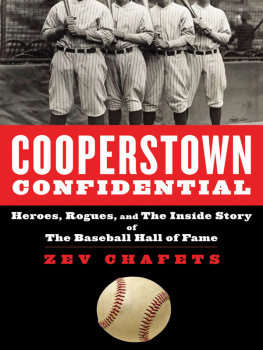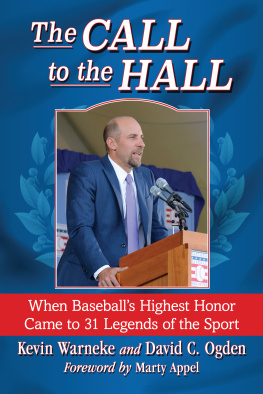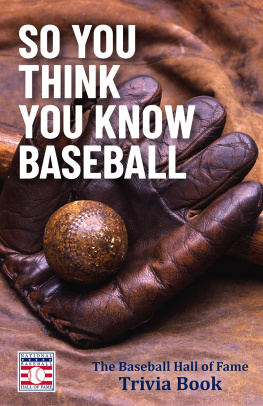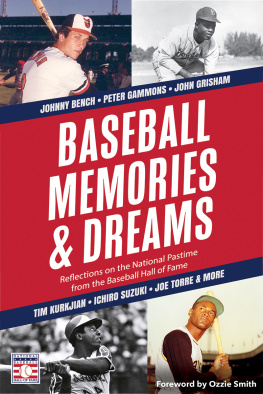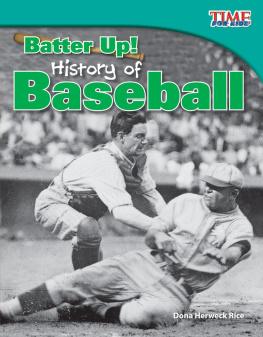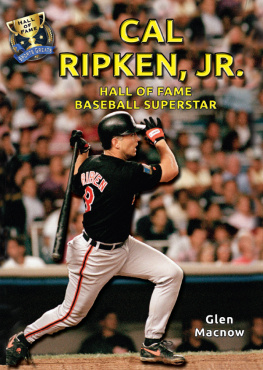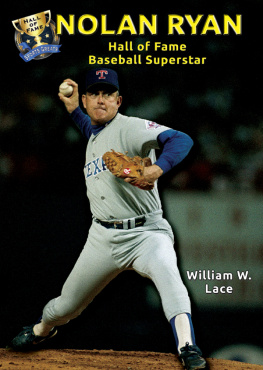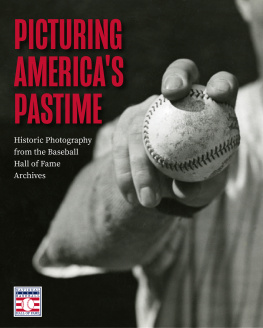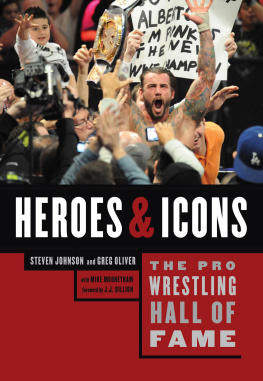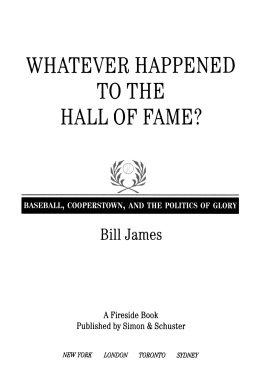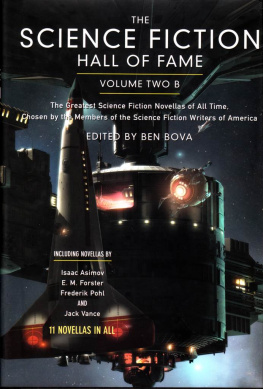Cooperstown Confidential
BY THE SAME AUTHOR
Non-fiction
Double Vision: How Americas Press Distorts
Our View of the Middle East
Heroes and Hustlers, Hard Hats and
Holy Men: Inside the New Israel
Members of the Tribe: On the Road in
Jewish America
Devils Night: And Other True Tales of Detroit
A Match Made in Heaven: American Jews,
Christian Zionists, and One Mans Exploration of
the Weird and Wonderful Judeo-Evangelical Alliance
Fiction
Inherit the Mob
The Bookmakers
The Project
Hang Time
Whacking Jimmy (as William Wolf)
Zev Chafets
COOPERSTOWN
CONFIDENTIAL
Heroes, Rogues, and the Inside Story of
the Baseball Hall of Fame

Copyright 2009 by Zev Chafets
All rights reserved. No part of this book may be used or reproduced in any manner whatsoever without written permission from the publisher except in the case of brief quotations embodied in critical articles or reviews. For information address Bloomsbury USA, 175 Fifth Avenue, New York, NY 10010.
Published by Bloomsbury USA, New York
All papers used by Bloomsbury USA are natural, recyclable products made from wood grown in well-managed forests. The manufacturing processes conform to the environmental regulations of the country of origin.
LIBRARY OF CONGRESS CATALOGING-IN-PUBLICATION DATA
HAS BEEN APPLIED FOR.
Chafets, Zeev.
Cooperstown confidential : heroes, rogues, and the inside story of the Baseball Hall of Fame / Zev Chafets.1st U.S. ed.
p. cm.
Includes bibliographical references and index.
eISBN 978-1-60819-109-3
1. National Baseball Hall of Fame and Museum. 2. BaseballUnited StatesHistory. 3. Baseball playersUnited StatesBiography. I. Title.
GV865.A1.C37 2009
796.357'092'273dc22
[B]
2009006601
First U.S. Edition 2009
1 3 5 7 9 10 8 6 4 2
Book design by Simon M. Sullivan
Typeset by Westchester Book Group
Printed in the United States of America by Quebecor World Fairfield
Dedicated to
Charley Ronen, son-in-law extraordinaire,
Abigail Ronen, latest but not least,
and
Malcolm Cook MacPherson (19432009),
beloved friend
Contents
Cooperstown Confidential
Soon after I started work on this book, I got in touch with Bob Lip-syte, a former New York Times sportswriter. We didnt know one another personally, but he had once written some good things about a novel of mine. Naturally, this disposed me to think of him as both wise and virtuous.
In an e-mail, I told Lipsyte what I was writing and asked if he would share his thoughts on the Baseball Hall of Fame. He responded with a question of his own: Why the hell was I writing a book on the subject?
Good question. I am not now, and never have been, a sportswriter or a baseball historian. As a kid in Pontiac, Michigan, I played ball, collected baseball cards, and rooted with all my heart for the Detroit Tigers to regain their past gloryor at least make it out of fifth place in the division. The Hall of Fame was a distant place back then, but it loomed large. Our baseball catechism began with the fact that Ty Cobb was the first man inducted into the shrine. Harry Heilmann, Mickey Cochrane, and Charlie Gehringer represented us in Coopers-town. So, after 1956, did Hank Greenberg and, the following year, Wahoo Sam Crawford. My friends and I were too young to have seen any of them play, but it didnt matter: we had a connection to greatness.
In 1967, I moved to Israel. Baseball wasnt played there (the national sport is freestyle po litical argument, no statistics allowed), and American games werent broadcast on tele vision because, at the time, Israel had no televi sion. All I had were the box scores on the sports page of the International Herald Tribune and a subscription to Sports Illustrated, which arrived sporadically orwhen SI ran a cover that interested Israeli postal clerks, on subjects like soccer or women in bathing suitsnot at all.
Sometimes we American expat journalists played sandlot baseball in the park, much to the amusement of the Israelis, who preferred soccer. But that changed in the late seventies, when a group of American socialist hippies arrived at Kibbutz Gezer, a collective farm about a half hours drive from Jerusalem. One of their first acts was to lay out a softball diamond. They also went about planting crops, some of which had more in common with Humboldt County than the Land of Milk and Honey. The kibbutzniks were good socialists; they believed in sharing. And so, within a few years, Gezer became the Coopers-town of Israel. Teams formed. Kibbutz Gezer fielded a squad of men and women, an act of gender-mixing that seemed revolutionary at the time, and also humiliating to the teams that lost to them. The Venezuelan embassy, one of the best squads, often showed up with drinks from the diplomatic duty-free store. So did the marine guards from the American embassy. All of them beat us, the foreign correspondents. My memories of those games are hazy, but I did take away one lasting lesson: not all substances are performance-enhancing.
Baseball never caught on in Israel, a fact that didnt deter a group of American entrepreneurs from attempting to set up a professional league there in 2007. A former U.S. ambassador to Israel, Dan Kurtzer, was appointed commissioner. Six teams were designated and began recruiting. Open tryouts were held in the U.S. for Jewish players who might want to combine a baseball career with a Zionist decision. This effort quickly yielded to the more realistic plan of importing players from Latin America. Two former major-leaguers, Kenny Holtzman of the Cubs and Ron Blomberg of the Yankees, were among the first managers. But even former big-leaguers didnt put fans in the grandstands. To be fair, there were no grandstands. The Baptist Village near the airport had a baseball field but it prohibited beer drinking, and its team quickly folded. There were only two other stadiumsan improvised ball field in a Tel Aviv park and the diamond at Kibbutz Gezer. In deference to the Sabbath, league games were not played on Saturday; and they werent played at night, either, because there were no lights. The games werent broadcast or telecast, and the Israeli press, after a half-hearted attempt to explain the rules of the sport, more or less ignored the whole thing. Unsurprisingly, the Israel Baseball League folded at the end of its first season. Evidently Commissioner Kurtzer had failed to inform the investors that the average Israeli would rather undergo a colonoscopy than watch nine innings of baseball in the hot sun. Chalk it up to yet another failure of American intelligence in the Middle East.
I missed the demise of the Israeli League. At that time, I was living in Westchester, New York, not fifteen minutes from Yankee Stadiumenemy territory. But despite my boyhood hatred of the Yankees, I found myself gradually drawn into the saga. It was, I discovered, great to be a Yankees fan. Unlike the Tigers, the Yankees were in the pennant race every year. The team had a roster full of future Hall of Famers, and bought new ones every season. The New York media turned these players into familiar A-list characters, complete with soap-opera back stories. Did Jeter hate Rodriguez, or were they best friends? What was Giambi on, and could he get off in time to save his career? Andy Pettitte kept following Roger Clemens around like Robin trailing Batmanwhat was that all about? What did Joe Torre really think of Steinbrenner? And what the hell was A-Rod doing at Madonnas apartment in the middle of the night? Unwillingly, irresistibly, I found myself being drawn to my new home team. (Rooting for the Mets was never an option. They are in the National League, an orga niza tion I grew up regarding as more foreign than the Warsaw Pact.)
Next page
